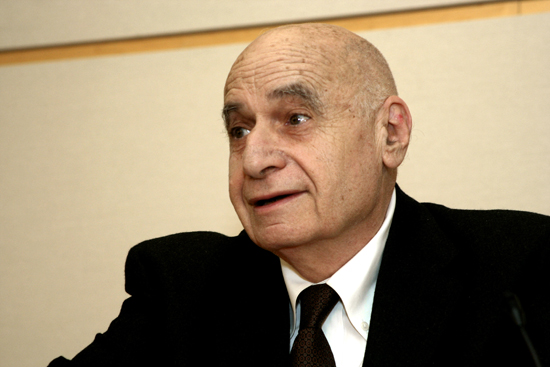Peter Berger is Distinguished Visiting Scholar
Dr. Peter Berger, former Director of Boston University’s Institute on Culture, Religion, and World Affairs, and Professor Emeritus of Religion, Sociology and Theology at BU, has accepted a one-year appointment as a Distinguished Visiting Scholar at Gordon College. During the 2015-16 academic year, among other activities, he will lecture, respond to presentations on religious pluralism, and participate with honors students in conversations about his work. He is writing the opening chapter to a special edited volume on the theological implications of his ideas on cultural pluralism and will serve as consulting editor of this volume. He also will continue to serve as principal advisor and consultant for the Templeton Project, for which the John Templeton Foundation has graciously agreed to fund a planning grant year, titled “Evangelicalism in Modernizing Cultures: Brazil and China.” The Templeton Project is one of several initiatives of Gordon’s new Center for Evangelicalism and Culture.
The complex interrelationship between religion and modernity is central to many of the contemporary challenges that accompany globalization. This upcoming book attempts to understand the everyday implications for evangelicals of cultural and religious pluralism, exploring its effects in context and providing direction for academics, pastors and lay people regarding how to think about pluralism and how to live with its complexity.
Berger is one of the best-known living sociologists in the world. His numerous books on sociological theory, the sociology of religion, and Third World development have been translated into dozens of foreign languages. In his 2011 Adventures of an Accidental Sociologist: How to Explain the World without Becoming a Bore, he discusses how he became a social scientist, and traces the main intellectual issues that have fueled his work over the years, and the adventures and encounters that have resulted. His most recent book, The Many Altars of Modernity (2014), argues that “secularization theory—which saw modernity as leading to a decline of religion—has been empirically falsified.” Berger makes a case for “a nuanced theory of pluralism,” proposing a “new paradigm for religion and pluralism in an age of multiple modernities.”
Dr. Berger’s one-year appointment began August 1, 2015.
 The Bell
The Bell